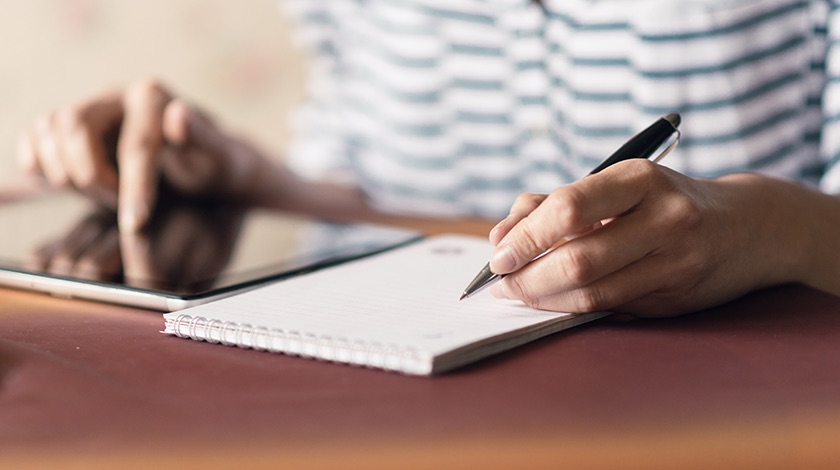It’s the day before an important presentation. You need to impress your boss and your client, and you know you need to be well-rested and chipper. So you tuck yourself into bed early, turn off the lights and think about how important it is that you get some sleep. But you find that the more you think about sleeping, the more elusive sleep is. And when you roll out of bed in the morning, with red, bleary eyes, you haven’t slept at all and feel completely unprepared for the presentation. Sound familiar?
It’s a cruel irony that sleep often eludes us at the times we need it most. And in a vicious cycle, the more worried we are about getting rest, the worse our sleep is. Anxiety about a big day at school or work can wreak havoc on our quality of sleep. What can we do about it? Here are five tips for getting the Zs you need. Getting a good night’s sleep starts well before you even get under the blanket!
Visualise Your Success
It’s axiomatic that the more confident you feel about an upcoming task, the less likely you are to lose any sleep about it. Vice versa, self-deprecation and neuroticism can cause negative thoughts to bloom in your mind and keep you tossing and turning under the covers. Positive thinking and self-confidence relaxes you and transforms the stressful event into an object of anticipation rather than fear.
To boost your confidence, visualize yourself doing well, whether that involves acing a job interview, impressing a client or giving a heartwarming speech.
Making a To-do List

Nothing keeps us up at night more than that nagging feeling that we’ve forgotten to do something important. Most of the time, this feeling is completely unwarranted, but this doesn’t stop our anxious mind from over-thinking things.
The solution is to make a to-do list. Next to each to-do item, write a few details of how you’ve already tackled the item or plan to handle it in the future. This has the added bonus of ensuring that you really don’t miss out anything before the main event!
Here’s an example.
|
To-Do Item |
Solution |
|
I have to look smart for the meeting tomorrow so that I make a great first impression. |
Choose my outfit and get it ready tonight. |
|
I need to update my slides for my presentation tomorrow afternoon. |
Update the slides the moment I get into the office. |
|
I’m worried I’m not familiar enough with my speaking notes. |
Review my speaking notes once before bed and once before breakfast. |
This way, you know exactly what you need to do and how you’re going to do it.
Take a Break
It can be hard to carve out time for a break when you’re busy at work on a new project or rushing to prepare for a big interview, but the importance of setting aside personal time for rest and relaxation cannot be overstated. You don’t have to spend a whole day lazing around or head out for an alcohol-fuelled night on the town to take a break.
Just spending 15 minutes reading a book or taking a hot bath can work wonders. Ideally, take your break right before bed, so that you prep your body and mind for a restful sleep.
Make Your Bedroom a Sanctuary
In order to get a good night’s sleep, you should train your body to relax as soon as you climb into bed. That means you need to create a psychological link between your bedroom and relaxation, cuing your mind to release all its worries and anxieties once you set foot into your bedroom. You can:
- Keep work-related materials out of the bedroom.
- Stay away from computers, TVs and smartphones. The blue light from these devices stimulate the brain and distract it, interfering with sleep.
- Only get into bed when you’re ready for sleep.
Avoid Checking the Time
When you’ve been frantically trying to doze off for hours and you know you’ll need to wake up soon, the temptation to check your clock and calculate how many hours, minutes and seconds you have left to sleep is strong. But you need to resist it!
Staring at the clock is only going to raise your stress levels and keep you wide awake. Forget the time and think about enjoyable activities — sports, travelling, eating — and let your mind float. Before you know it, you’ll be in dreamland.

